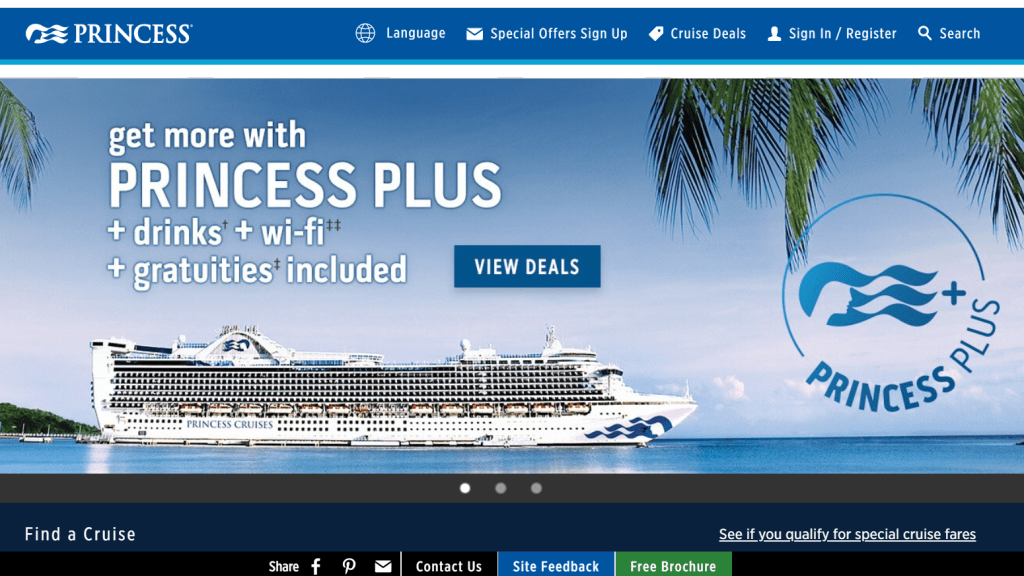
A cruise ship's medical centre is specifically designed to provide onboard health care for passengers and crew. This facility typically has separate reception areas for crew and passengers, doctors' consultation rooms, a dispensary, X-ray room, and treatment rooms. These rooms are fully equipped with surgical equipment and sterile supply. One to three two-bed hospital wards are included in an inpatient zone. There is also a central nurse area.
Medical staffing on cruise ships
There is a wide range of medical staff onboard cruise ships. No matter how large the vessel, medical staff is trained to perform a wide range of tasks. This includes prescription monitoring and documentation, as well as emergency care. Doctors are also responsible for prescribing medication and organizing logistics for evacuations or referrals. Other tasks that medical staff can perform include administering medication, managing preventative health programs and managing passengers and crew.
Many cruise lines offer a medical facility on the lower deck. It has doctors and nurses on call 24 hours a day, and several beds for minor ailments and emergencies. Most ship nurses and doctors deal with minor injuries as well as motion sickness and respiratory problems. Sometimes, they coordinate with local medical services to provide proper care. Apart from regular medical and nurse staff, all medical staff aboard cruise ships must have been exposed to COVID.

Medical treatment: Cost
While cruise ships are not floating hospitals, their onboard medical facilities are far more advanced than the average shore hospital. Infirmaries can treat minor injuries and illnesses and stabilize passengers until they can be transferred to the nearest land hospital. All medical services are available round the clock. While the medical care provided on board is less than in a traditional hospital setting, it can still be used for common conditions.
Most insurance plans do no cover medical services outside the U.S. and can charge several thousand dollars for a hospital on a ship. Medicare is flexible and will reimburse some of the expenses, so long as the treatment has been deemed necessary. If the ship is within six hour of a U.S. harbor, Medicare will cover ambulance costs. It may also cover services provided by connected providers and ambulance costs if the foreign hospital is closer to the resident's home.
Medical center located
While cruise ships aren't floating hospitals, they do have medical facilities and trained staff for all types of minor issues. Most ships have several beds, stretchers, and backboards for spinal injuries, as well as defibrillators and cardiac monitors. The cruise ships have an emergency room and basic care for anyone suffering from seasickness, sea/motion sickness, or other conditions. Medical personnel are on hand 24 hours a day, seven days a week.
Cruise ships can become dangerous if there is a medical emergency. Both minor and major emergencies can be treated by the medical team. In severe cases, an evacuation may be required to transport the patient to a port nearby. In such situations, the ship's management might request helicopter assistance or call for help from nearby vessels. Call 7-3000 if you need immediate help if the evacuation is not feasible.

Qualifications of medical staff
The medical staff onboard a cruise ship must have a high level of education and experience in emergency medicine. All emergencies must be attended by board-certified doctors. Additionally, nurses must have at minimum three years of experience after graduation. Staff must also have advanced life support certifications and be flu- and COVID infected. All medical personnel on cruise ships must have the ability to use computer software.
Nurses working on board a cruise ship must be highly qualified and have the training required by the country they are traveling to. It is not necessary to have a bachelor's level in nursing, but it is strongly recommended. It is necessary to have a RN license, and a certification in advanced cardio life support. Furthermore, nurses on cruise ships must have at most three years experience in emergency, acute, and specialized care. This typically refers back to working in a hospital environment.
FAQ
Are there any downsides to cruising
You should consider the pros and cons to cruising. Some people might not want to spend all of their vacation on a boat. Others might prefer to stay closer to shore or in a hotel. Others might feel uncomfortable leaving land for such a long time. These fears can be easily overcome if you choose a cruise with plenty time ashore.
Can my pet be brought onboard?
Most cruise lines allow pets aboard. There are restrictions, though. First of all, you must make sure that your pet is healthy enough to travel. Pets who are too sick or unable to travel should not be allowed on board. If they are service dogs, they cannot be brought on board. Service dogs are trained in order to aid people with disabilities. Finally, you cannot bring any type of dangerous animal on board.
How do I select the right cruise line for me?
It's easy to pick the right cruise ship. First, choose the type of cruise that you wish to take. Do you prefer a smaller cruise with fewer passengers or one with more? Next, consider how much you are willing to spend. You might be interested in cruises that include all-inclusive options if you are looking for something cheaper. This means that you will not have to worry about paying extra for food, drinks, entertainment, etc. You should also ensure that your cruise line offers good family programs if you're planning on a family trip.
Is a cruise ship all-inclusive?
Cruise ships are not all-inclusive because they do not include meals for passengers with dietary restrictions. They don't offer laundry service or room service.
Some cruise lines do offer "all-inclusive" deals that cover all aspects of the trip, including alcohol. These packages generally include airfare, hotel accommodations or entertainment.
Statistics
- *20% Gratuities Apply on Free Unlimited Open Bar; Free Specialty Dining. (ncl.com)
- You can save 15% off the total price if you book in advance of your trip. (travel.usnews.com)
- The line estimates savings of 50% when you purchase this bundle. (travel.usnews.com)
- If you're traveling alone, you may also need to factor in a single supplement, adding up to as much as 100% of the cruise fare. (travel.usnews.com)
External Links
How To
How to avoid becoming seasick during a cruise
A hat is the best way to prevent seasickness while on cruise. A wide-brimmed hat helps prevent motion sickness by keeping the head from moving too much.
Also, a cap keeps water off the skin and helps to reduce the moisture content of the air. People who feel dizzy from breathing in moist air can breathe easier.
Another tip is to drink lots of fluids. Avoid alcohol or caffeine. These drinks dehydrate the body causing more fluid to move around in the stomach. A sufficient amount of liquids will reduce salt levels. The body retains water due to salt, which can lead to nausea.
Salty foods can help if you feel nauseated. Salty foods cause the stomach to produce more hydrochloric acid, which helps break down food particles in the digestive system.
If none of these tips work, there are medications you can take to relieve seasickness. Side effects of some medications include dry mouth, dry eyes, constipation and blurred vision.